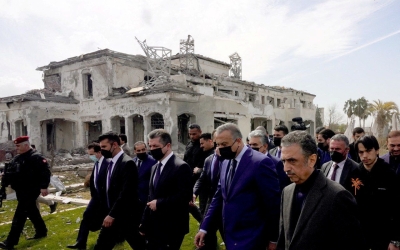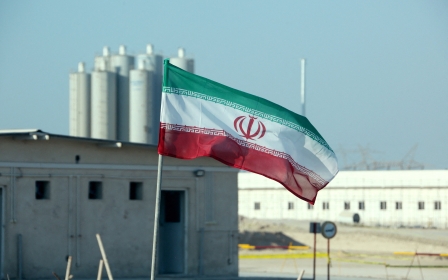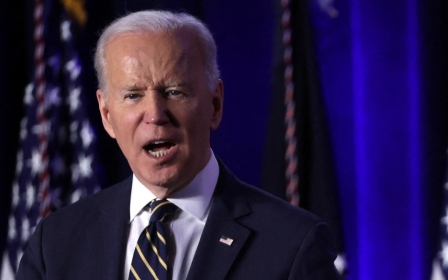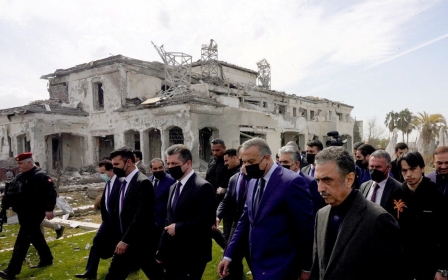Iran: Nazanin Zaghari-Ratcliffe's passport returned

Imprisoned British-Iranian charity worker Nazanin Zaghari-Ratcliffe has had her passport returned in Iran, as reports suggest her release from house arrest may be imminent.
Tulip Siddiqi, MP for Hampstead and Kilburn - where Zaghari-Ratcliffe lived in the UK prior to her detention in Iran in 2016 - tweeted that Iranian and British officials were negotiating the next step.
"I am very pleased to say that Nazanin Zaghari-Ratcliffe has been given her British passport back," she wrote.
"She is still at her family home in Tehran. I also understand that there is a British negotiating team in Tehran right now."
Earlier on Tuesday, Iranian journalist Sara Massoumi claimed in a tweet that Zaghari-Ratcliffe's release, and that of another detainee, was "imminent" and that a contentious £400m ($521m) debt owed by the UK to Iran had been paid.
Zaghari-Ratcliffe's employer, the Thomson Reuters Foundation, quoted her lawyer, Hojjat Kermani, as saying: "I am hopeful that we will have good news soon."
Debt negotiations
Zaghari-Ratcliffe, a project manager with Thomson Reuters, was arrested in 2016 as she was leaving Iran after taking her then 22-month-old daughter to visit her family and subsequently jailed for five years after being convicted of plotting to overthrow the government.
Then in April last year she was sentenced to another year's imprisonment over her participation in a rally outside the Iranian embassy in London in 2009.
She was freed from prison with an electronic tag in March 2020 due to the Covid-19 pandemic.
Zaghari-Ratcliffe's husband, Richard Ratcliffe, has insisted that the case against his wife is a sham and is being used as a bargaining chip by Tehran to secure the debt payment from the UK.
Shortly before the 1979 Iranian revolution that overthrew Shah Mohammad Reza Pahlavi, the British government struck an arms deal with the shah to sell more than 1,500 Chieftain battle tanks and 250 repair vehicles to Iran.
Iran paid £600m ($795m) for the tanks in advance, but having delivered only 185 tanks, Britain refused to deliver the remaining equipment when the shah was deposed.
The international court of arbitration in The Hague ordered Britain to pay the debt in 2001, a ruling upheld in 2009.
However, the two governments have been locked in a prolonged legal battle in the British courts over the exact sum owed and whether or not the UK should pay interest on it.
Middle East Eye propose une couverture et une analyse indépendantes et incomparables du Moyen-Orient, de l’Afrique du Nord et d’autres régions du monde. Pour en savoir plus sur la reprise de ce contenu et les frais qui s’appliquent, veuillez remplir ce formulaire [en anglais]. Pour en savoir plus sur MEE, cliquez ici [en anglais].





